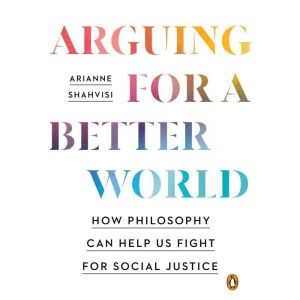

Arguing for a Better World
How Philosophy Can Help Us Fight for Social Justice
Author: Arianne Shahvisi
Narrator: Arianne Shahvisi
Unabridged: 9 hr 1 min
Format: Digital Audiobook Download
Publisher: Penguin Audio
Published: 07/18/2023
Categories: Nonfiction, Philosophy, Language Philosophy, Logic, Ethics & Moral Philosophy
Synopsis
We’ve all wrestled with questions like these, whether we’re shouting at a relative across the dinner table, quarreling with old classmates on social media, or chatting late into the night with friends. Many people give kneejerk answers that roughly align with their broader belief system, but flounder when asked for their reasoning, leading to a conversational stalemate—especially when faced with a political, generational, or cultural divide.
The truth is that our answers to these questions almost always rely on unexamined assumptions. In Arguing for a Better World, philosopher Arianne Shahvisi shows us how to work through thorny moral questions by examining their parts in broad daylight, equipping us to not only identify our own positions but to defend them as well. This book demonstrates the relevance of philosophy to our everyday lives, and offers some clear-eyed tools to those who want to learn how to better fight for justice and liberation for all.

